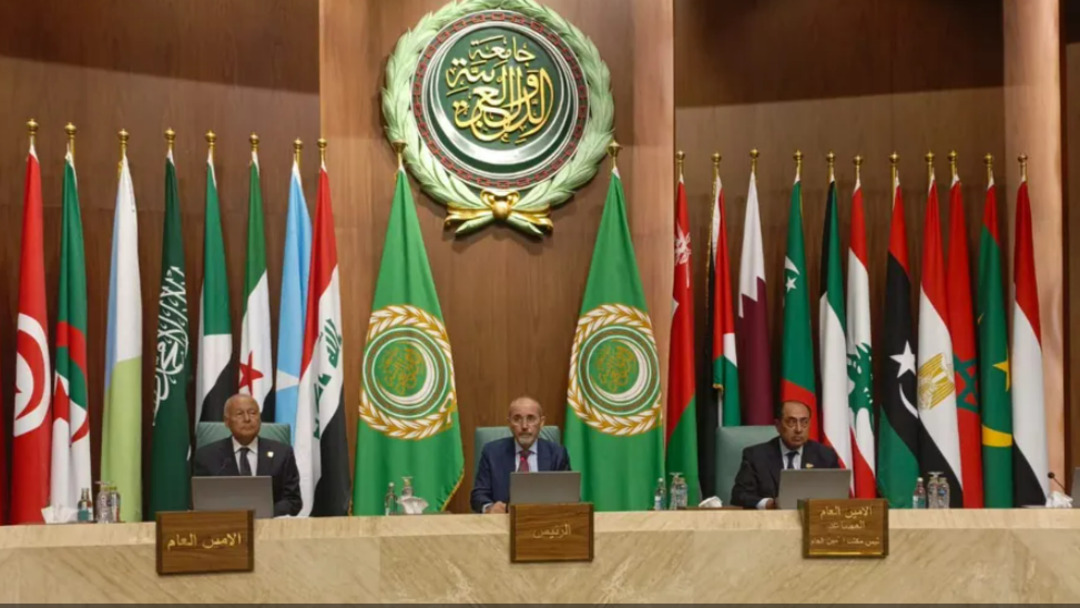-
Cairo Meetings Enhance Palestinian Support and Discuss Recognition of the Palestinian State

On Thursday, the 164th regular session of the Arab League Council began in Cairo, chaired by the United Arab Emirates, with the attendance of the League’s Secretary-General Ahmed Aboul Gheit and the UN Relief and Works Agency for Palestine Refugees (UNRWA) Commissioner-General Filippo Grandi. The meeting addressed developments in the Palestinian cause, efforts to recognize the Palestinian state, ways to stop Israeli aggression on Gaza, reconstruction plans, and support for the resilience of the Palestinian people politically, economically, and socially.
In this context, Jordan’s Deputy Prime Minister and Foreign Minister Ayman Safadi affirmed that the "Two-State Solution" conference represents "a voice for Palestinian rights and an affirmation of the Palestinian-Arab strategic choice to achieve just, comprehensive, and lasting peace that ensures the security of all countries in the region." He praised international efforts and Arab initiatives, especially the conference organized by Saudi Arabia in cooperation with France last July, which he described as an important milestone in supporting Palestinian rights. He also emphasized the significance of the upcoming conference in Riyadh and Paris on the margins of the UN General Assembly meetings, amid increasing international recognition of the Palestinian state.
Safadi further renewed Jordan’s support for the Palestinian Authority and President Mahmoud Abbas’s reform vision, highlighting the importance of commitments outlined in the messages he sent to Saudi Crown Prince Mohammed bin Salman and French President Emmanuel Macron. Additionally, he condemned Israeli extremist statements regarding intentions to impose sovereignty on occupied Palestinian territories, describing them as "reckless hate speech that the international community must denounce."
Safadi also reiterated Jordan's rejection of illegal Israeli measures in the West Bank, which aim to impede the establishment of an independent Palestinian state based on 1967 borders with Jerusalem as its capital. He called for intensified international efforts to support the two-state solution.
Meanwhile, Khalifa bin Shakhin Al Marar, UAE State Minister, during his speech before Arab foreign ministers, emphasized that the Palestinian issue will remain a core element of UAE policy. He stressed that a just and comprehensive solution can only be achieved through the establishment of an independent, sovereign Palestinian state living in security and peace alongside Israel.
Al Marar pointed to the UAE’s participation in the two-state solution conference in New York, led by Saudi Arabia and France, and its endorsement of the resulting declaration, which serves as a roadmap toward establishing a Palestinian state. He called for increased international support to halt the war in Gaza, provide lifesaving humanitarian aid, prevent displacement, and prevent land annexation.
He also stated that the UAE believes it is essential to halt the deterioration of conditions in the West Bank and Jerusalem, confront illegal Israeli practices, including the expansion of settlements and extremism by Israeli officials, and exert effective international pressure to resume negotiations between Palestinians and Israelis with the goal of reaching a just, sustainable solution. He underlined the importance of unifying the peace narrative and fighting extremism and terrorism, noting that UAE efforts include humanitarian work in Gaza and diplomatic initiatives to create conducive environments for peace negotiations.
In conclusion, Al Marar expressed the view that regional stability begins with ending the war, securing Palestinian rights, and strengthening the path of peaceful negotiations. He reaffirmed that the UAE will remain an active supporter of promoting peace and supporting the Palestinian people in their pursuit of establishing an independent state, achieving security, and fostering development.
You May Also Like
Popular Posts
Caricature
opinion
Report
ads
Newsletter
Subscribe to our mailing list to get the new updates!






















